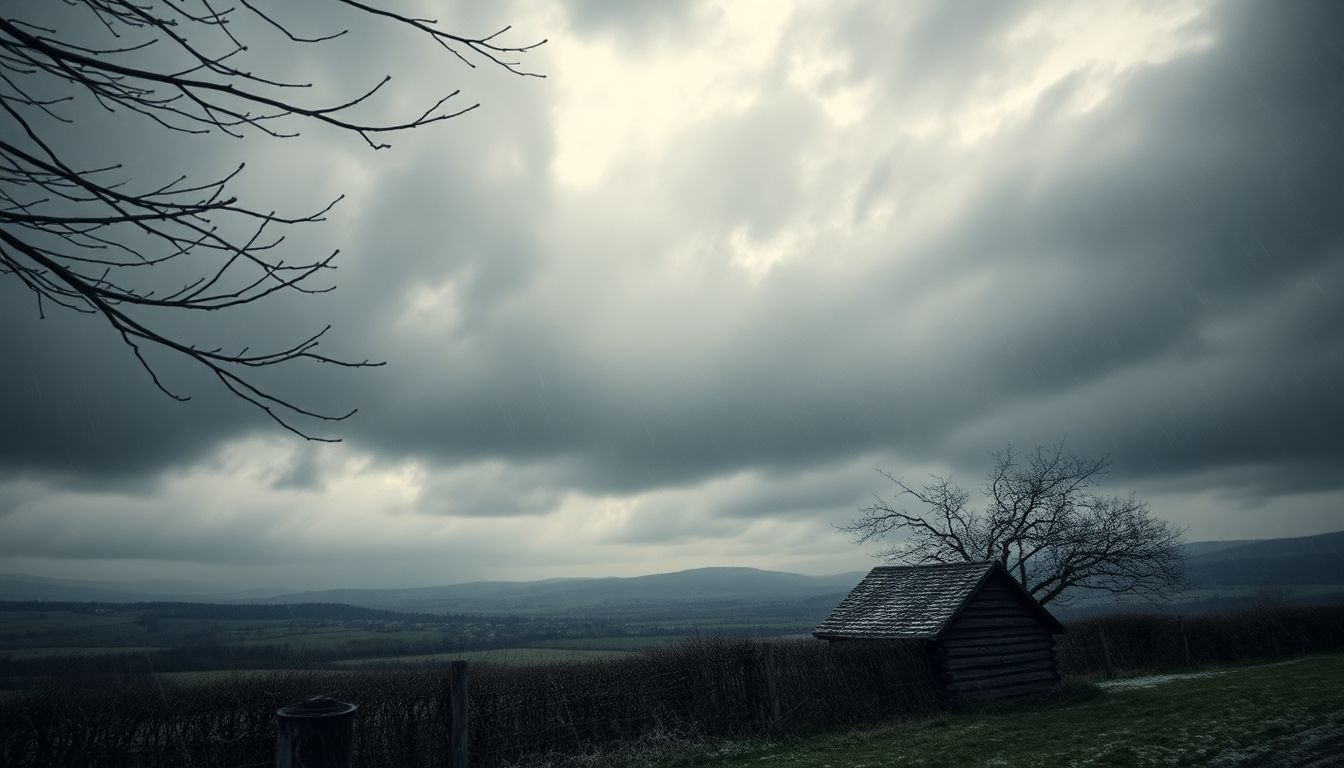
UK Winter Weather Alerts: Stay Safe and Prepared
Facing winter in the UK can feel intense. Heavy snow blankets streets, strong winds uproot trees, and icy conditions lead to accidents. Last year, the UK experienced over 30,000 weather-related incidents, highlighting the impact of winter storms. This article aims to equip you with important safety tips and strategies to prepare effectively for winter weather.
Understanding UK Weather Warnings
Types of Weather Warnings
The UK has a simple warning system to keep us safe. These are:
- Yellow Warning: Be aware. Weather conditions could affect travel and outdoor activities.
- Amber Warning: Be prepared. Severe weather is likely, and you should plan ahead for possible disruptions.
- Red Warning: Take action. Extreme weather is imminent, and you must stay safe and avoid unnecessary travel.
Sources of Information
To stay updated, rely on trusted sources such as:
- Met Office website: Offers real-time weather updates.
- Met Office app: Convenient alerts directly to your phone.
- Local news outlets and social media: Keep track of weather events in your area.
Deciphering Warning Language
When you see a weather alert, it may use terms like "disruption," "danger," or "risk." Understanding these terms can help you assess the situation. Disruption means travel may be impacted, while danger indicates serious hazards.
Preparing Your Home for Winter Weather
Winterizing Your Home
To ensure your home is ready:
- Check heating systems: Ensure they are efficient and functioning properly.
- Insulate pipes: This prevents freezing and bursting.
- Clear gutters: Clogged gutters can lead to ice dam formation.
Stocking Up on Essentials
Be prepared by having these items on hand:
- Non-perishable food: Canned goods, pasta, and rice can last for weeks.
- Bottled water: Aim for at least a three-day supply.
- Medication and first-aid supplies: Keep essentials stocked.
Power Outages
Power outages can happen during storms. Prepare by:
- Having flashlights: Stock up on batteries.
- Using battery-powered radios: Stay updated on the situation.
- Storing extra blankets: Keep warm during outages.
Staying Safe During Severe Weather
Driving in Winter Conditions
Driving in snow and ice can be tricky. Follow these tips:
- Slow down: Allow extra time and space to stop.
- Avoid sudden movements: Be gentle with steering and braking.
- Check government advice on winter driving safety.
Walking in Hazardous Conditions
When walking on icy sidewalks:
- Wear appropriate footwear: Shoes with grip can prevent slips.
- Take short steps: This helps maintain balance.
- Watch for black ice: Always be cautious in shaded areas.
Protecting Yourself from the Cold
Stay warm with these strategies:
- Dress in layers: Wear multiple layers to trap heat.
- Use hats and gloves: Keep extremities covered.
- Stay indoors during extreme cold: Limit exposure to frigid temperatures.
Protecting Vulnerable Individuals
Checking On Elderly Neighbours and Relatives
Community support is vital. Reach out to elderly neighbors and family members. Offer assistance with:
- Shopping for groceries: Don't let them venture out alone in bad weather.
- Helping with shoveling snow: Lend a hand to keep pathways clear.
Supporting Vulnerable Family Members
For family with health issues:
- Ensure they have essential supplies: Coordinate with them to stock up.
- Check-in regularly: Make sure they are safe and comfortable.
Accessing Support Services
Know whom to contact for help. Useful resources include:
- Local councils: Providing aid during bad weather.
- Age UK and similar organizations: Offer assistance to the elderly.
- Local charities: Help those in need of food and medical supplies.
Post-Storm Recovery
Assessing Damage to Property
After a storm, evaluate your home:
- Inspect the roof: Look for loose shingles or leaks.
- Check windows and doors: Ensure there are no cracks.
- Report any damage: Contact professionals if necessary.
Dealing with Insurance Claims
If your property is affected, follow these steps:
- Document damage: Take photos and keep notes on what occurred.
- Contact your insurance company: Provide them with all necessary information promptly.
- Keep track of expenses: Save receipts for repairs and related costs.
Community Support and Resources
In times of need, local groups can provide support. Look for:
- Community recovery initiatives: These often help with rebuilding efforts.
- Volunteer groups: Offer assistance to those affected by severe weather.
Conclusion: Be Prepared, Stay Safe
Winter weather in the UK can bring challenges. By understanding weather warnings, preparing your home, and looking out for vulnerable individuals, you can make a significant difference. Stay informed, heed official alerts, and ensure you and your community stay safe during these cold months. Preparedness is key to weathering any storm. Stay warm, stay safe, and embrace resilience this winter!


